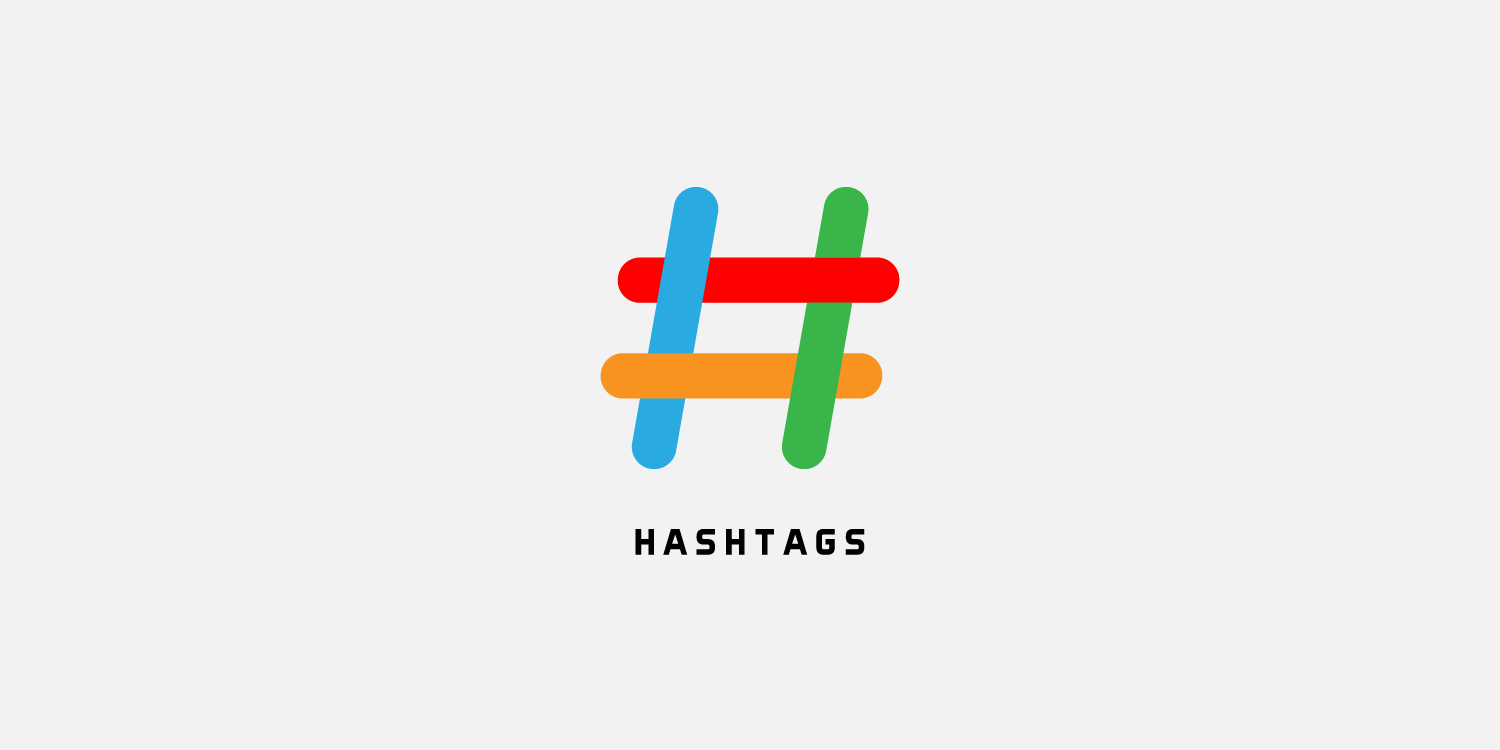However, back in the day, not many people even understood the concept of hashtags and what you should use them for.
Moreover, there were probably only several people who figured out how to use hashtags for marketing back then. To understand how it works now, it is important to know how hashtags came to be and who started it all. Here are the history and all the secrets of hashtag marketing on social media.
Short History of Hashtags
Though hashtags were technically used way back in the good old days of 1988 when Internet Relay Chat or IRC was a thing (they were used for grouping and categorizing images, videos, messages, and other content), many credit the actual invention of hashtags to Twitter.
The concept of using the # sign to make a hashtag out of a certain word or phrase was first introduced on Twitter by Chris Messina in 2007. The hashtag #sandiegofire helped people to be informed about the latest news on the tragedy.
However, the term itself (“hashtag”) was coined by Stow Boyd on his blog. In 2009, Twitter officially acknowledged hashtags and introduced a code that immediately hyperlinked the word or phrase preceded by the # sign.
In 2010, Twitter started highlighting hashtags that were the most popular on its platform at that specific moment. These highlights were called “trending” or “trending topics” – two terms that became closely associated with social media.
In January 2011, Instagram added hashtag support and that same month Audi premiered its Super Bowl commercial with a hashtag campaign. Perhaps, this can be considered the first time a high-profile brand used hashtag marketing on social media.
Many other social media platforms soon followed in the footsteps of Twitter and Instagram with Google+ starting to link hashtags automatically in October 2011, Vine being launched with hashtag support in January 2013, Flickr adding hashtag support to its iOS app in March 2013, and Facebook adding hashtag support in June 2013.
Hashtag Statistics
No matter how many people keep saying that hashtag marketing is real, there will still be skeptics who claim that it’s all nonsense and there are more effective ways to grow your following on social media. Luckily, there are many statistics that prove these skeptics wrong:
- Using hashtags on Twitter and Instagram can improve your engagement rates by up to 12.6%.
- Though you can add up to 30 hashtags on Instagram, the optimal number per post is 9. Other platforms have different optimal numbers of hashtags according to studies.
- The most popular Instagram hashtag is #love.
- Tweets with 1-2 hashtags are 55% more likely to be retweeted.
Hashtag Marketing Secrets
Now that you know where hashtags came from and why they are important, there are some things you should know about how to use them effectively in your social media marketing campaign. Here are some tips and tricks for hashtag marketing:
- Use the Right Number: As mentioned earlier, it is important to know that certain social media platforms need a certain number of hashtags in your posts.
Instagram’s optimal number of hashtags per post is 9, Twitter’s is 1-2, Facebook’s (surprisingly, though not everyone agrees on this) is 0, Pinterest’s is 0, and LinkedIn’s is 2-3. Of course, there are not enough studies to say anything for certain, but these numbers should serve as an orienteer for you to start from.
- Always Localize Your Hashtags: There are many brands that want to reach foreign audiences while also engaging with their local ones, so they start translating their content and posting these translations.
However, an important thing to remember is that your hashtags should also be properly localized in such cases. You can use professional writers from an online writing service like Online Writers Rating who know how to do such things.
- Track Your Hashtag Performance: You will be using a certain number of hashtags in your posts with at least several of these hashtags being repeated throughout your posts.
This is why you need to know how well your hashtags are performing, because if they don’t work, what’s the point in using them? There are special apps, programs, and tools that you can find hashtags and helps you track the performance of them and check if it is satisfactory enough.
- Check Different Metrics: This tip applies both to tracking the performance of your hashtags and to tracking the performance of your posts. There is a variety of metrics that you need to track to be able to see the full picture and understand what should be changed and what should be kept.
You need to track popularity (how popular is the hashtag), engagement or interactions (how many people interact with the hashtag and how many people engage with your post when they see it), reach (how many people see the hashtags you use), and users (who uses the hashtags you use and whether or not these people are your target audience).
- Use Different Types of Hashtags: There are several types of hashtags you want to be using: general (e.g. #love #spring), branded (#Nike #JustDoIt), industry-specific (e.g. #redmattelipstick #cherryfrostedcake), trending (any hashtags that are trending at that specific moment), event (e.g. #ComicCon2020 #SuperBowl2020), and campaign or ad (hashtags created specifically for your campaign). If you make sure to use all of these different types of hashtags, you will be able to reach different segments of your audience and get more exposure.There can be two people both of whom will be potentially interested in your content and your products, but one will be searching for #TheGreatBritishBakeOff and the other one will be searching for #cakerecipe.



Leave A Comment